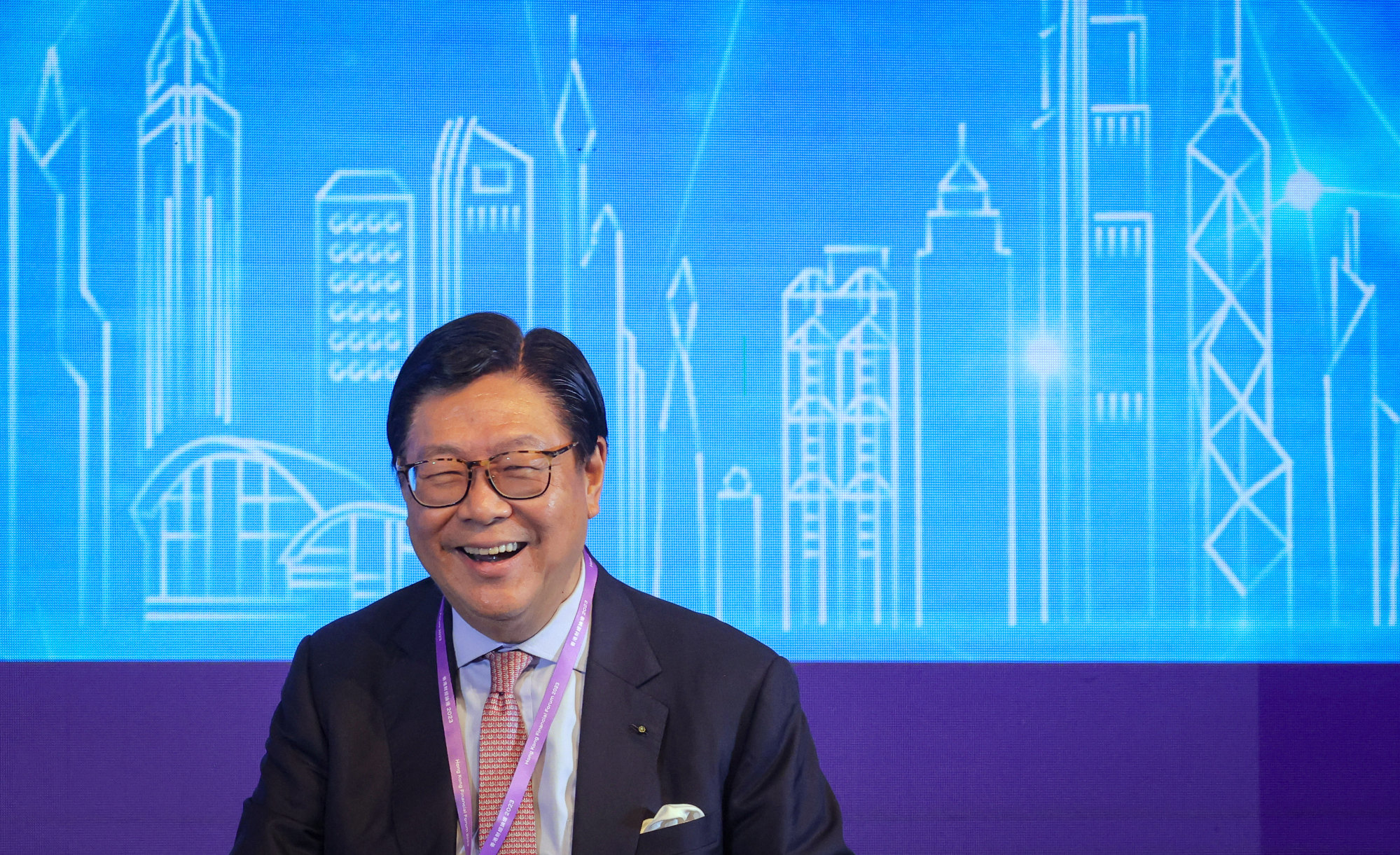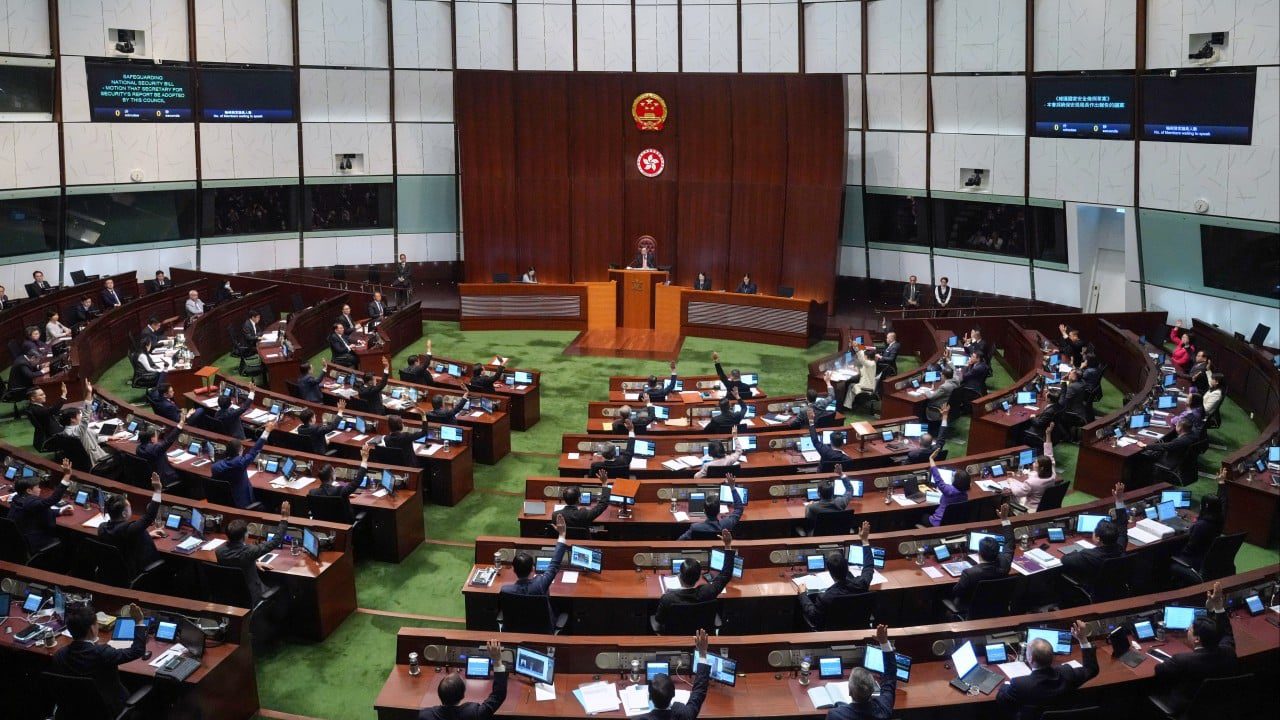Hong Kong may become ‘isolated’ if it does not ease fears over Article 23 law in US and Europe, former commerce chief says
Hong Kong may become “isolated” if the government does not step up efforts to ease concerns in the US and Europe over the city’s domestic national security law, a former commerce minister has said, calling again for high-level delegations to fight smears.
Frederick Ma Si-hang, the city’s former commerce and economic development minister, said on Sunday that business heavyweights also needed to be involved in explaining the actual situation in Hong Kong to their overseas partners.
“[The government] needs to go out and explain, mobilising the business sector to tell Hong Kong’s situation to their friends [overseas]. Only by doing so, we won’t get isolated,” Ma told a radio programme.
“It is crucial for us to maintain contact with the international business community, especially in Europe and the United States … They have significant business interests in Hong Kong.”
Ma, now an honorary professor in economics at the University of Hong Kong, was renewing his earlier call for government-led business delegations to ward off smear campaigns while the city battled negative impressions such as those resulting from US sanctions imposed on certain local officials.
The call was echoed on Sunday by Regina Ip Lau Suk-yee, convenor of the key decision-making Executive Council, in an opinion piece in the Post.
She said explanation and clarification were needed to assuage worries by beginning “to tell the real story about Hong Kong’s national security law” after the “victory lap” celebrating its passing.
The Safeguarding National Security Ordinance – a requirement under Article 23 of the Basic Law, the city’s mini-constitution – took effect on Saturday after lawmakers passed the legislation in a marathon session last week.

The legislation introduced new offences and updated others to supplement those set out in the national security law Beijing imposed in 2020 following often violent protests that had wracked the city the year before.
A war of words between China and foreign critics such as the US and Britain quickly ensued after the legislation’s passing, continuing into the weekend.
Beijing and Hong Kong authorities on Saturday hit back at criticism by US Secretary of State Antony Blinken, accusing him of deliberately misleading the public and smearing the law. The top US diplomat argued the law would have broad implications for Hong Kong residents as well as US citizens and companies, claiming it posed a threat to their rights and freedoms.
But Ma said on Sunday: “If the situation is like what [Blinken] had said, [the US companies] should have already left Hong Kong.”
Beijing hits back at US criticism of Hong Kong’s Article 23 security law
Beijing hits back at US criticism of Hong Kong’s Article 23 security law
He said countries such as the US, Britain and Australia showed a “double standard” in their responses, because they too had laws in place to protect national security.
The former commerce official also said the city’s challenges, from the 2019 anti-government protests to the Covid-19 pandemic, undoubtedly affected its standing as an international financial centre and made it difficult for those overseas to understand what it had been going through.
“The government needs to strive for self-improvement and maintain a sense of crisis when solidifying Hong Kong as an international financial centre as other countries are eager to seize the opportunities available to take our status,” he said.
Apart from attracting new investments from the Middle East, Ma stressed the importance of overseas promotion even though some Western countries did not have positive attitudes towards the city.
“It could be beneficial for the government to put together advertising campaigns abroad, including op-ed pieces, to present the actual situation in Hong Kong,” he said. “This would prevent media monopolisation of one-sided narratives.”

